
Welcome to our digital newsletter! Your source for updates on health equity initiatives, community partnerships, and IHN programs, it’s your go-to source for collaboration, innovation, and impact in the St. Louis region & beyond. Let’s build healthier communities together.

A NIGHT UNDER THE LIGHTS: ANDWELE JOLLY HONORED AS AN “EXCEPTIONAL NEIGHBOR” BY ST. LOUIS CITY SC
On September 6, 2025, during St. Louis CITY SC’s home match against Dallas, our President and CEO, Andwele Jolly, was recognized as an “Exceptional Neighbor” by St. Louis CITY SC in partnership with Enterprise. This honor highlights local leaders who go above and beyond in health and wellness, community investment, youth development, and arts and culture.
As part of the celebration, St. Louis CITY SC welcomed IHN staff and board members to join together at the stadium to honor Andwele. Under the stadium lights, with the energy of the crowd all around us, colleagues and friends cheered side by side. It was a night of shared pride and connection—a joyful reminder of the community we strive to build every day.
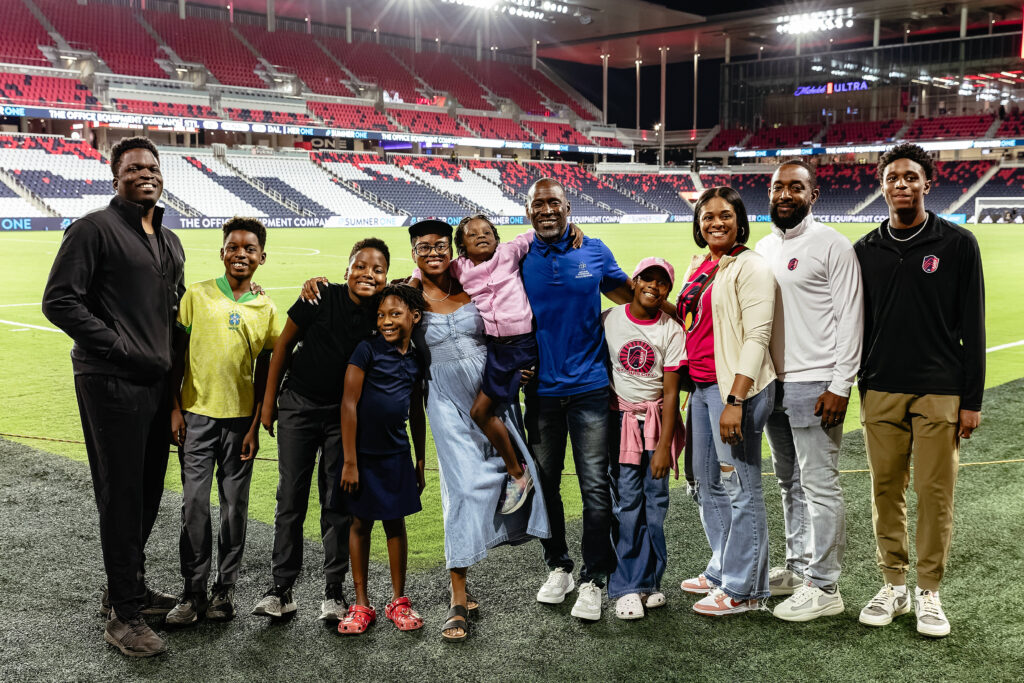
Andwele’s dedication to improving community health and strengthening connections across St. Louis reflects the very spirit of this award. We’re thrilled to see his commitment celebrated on such a visible stage—congratulations, Andwele!
We invite our partners, supporters, and neighbors to join us in celebrating Andwele’s well-deserved recognition and in continuing the work of building a healthier, more connected St. Louis.
Want to support this work? Learn more or get involved with IHN at https://givebutter.com/st-louis-integrated-health-network or visit https://stlouisihn.org.
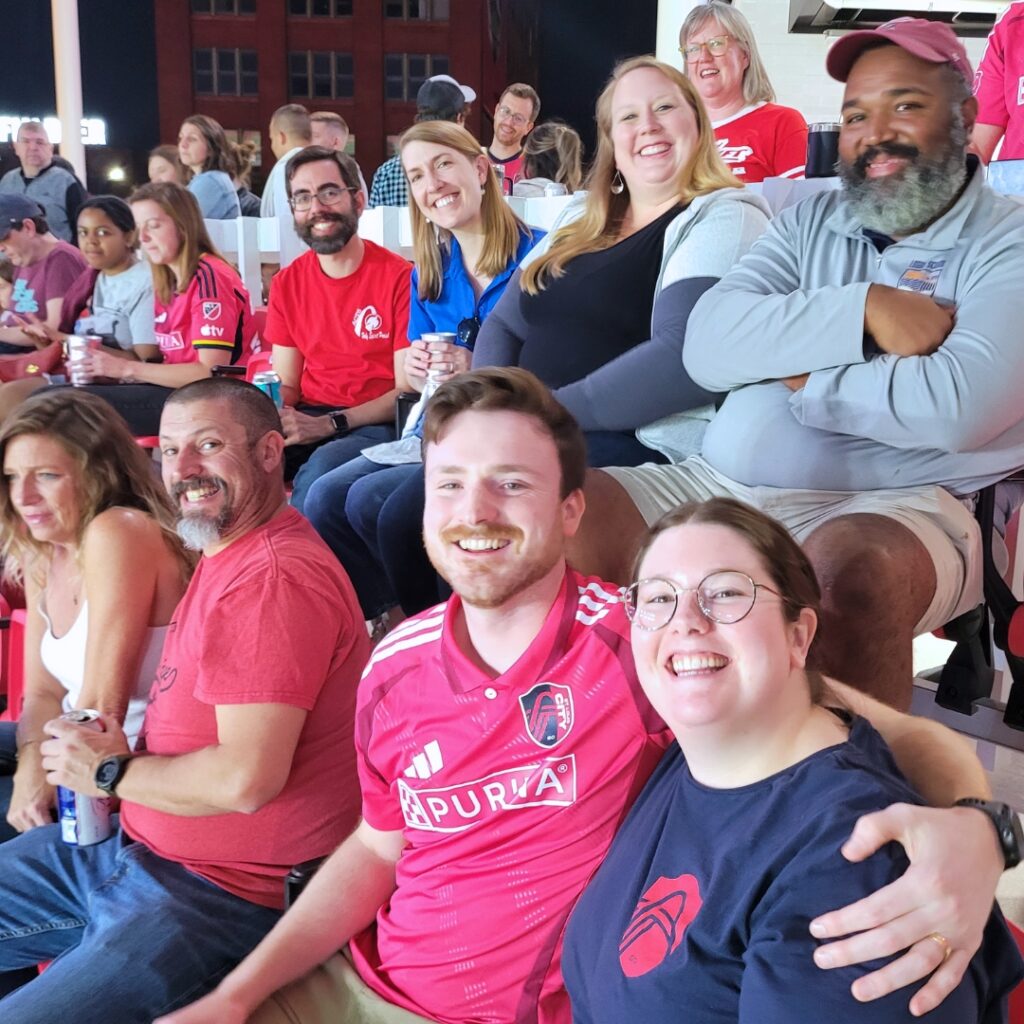
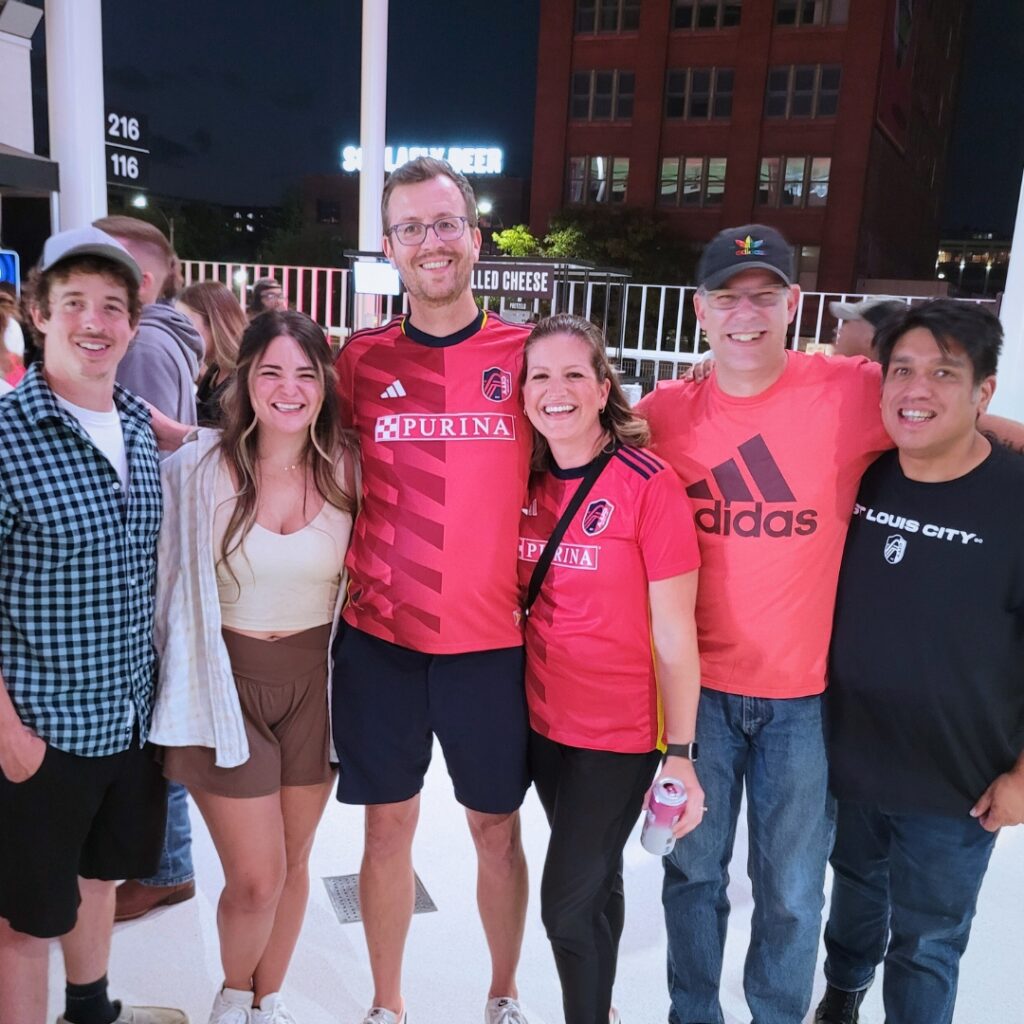
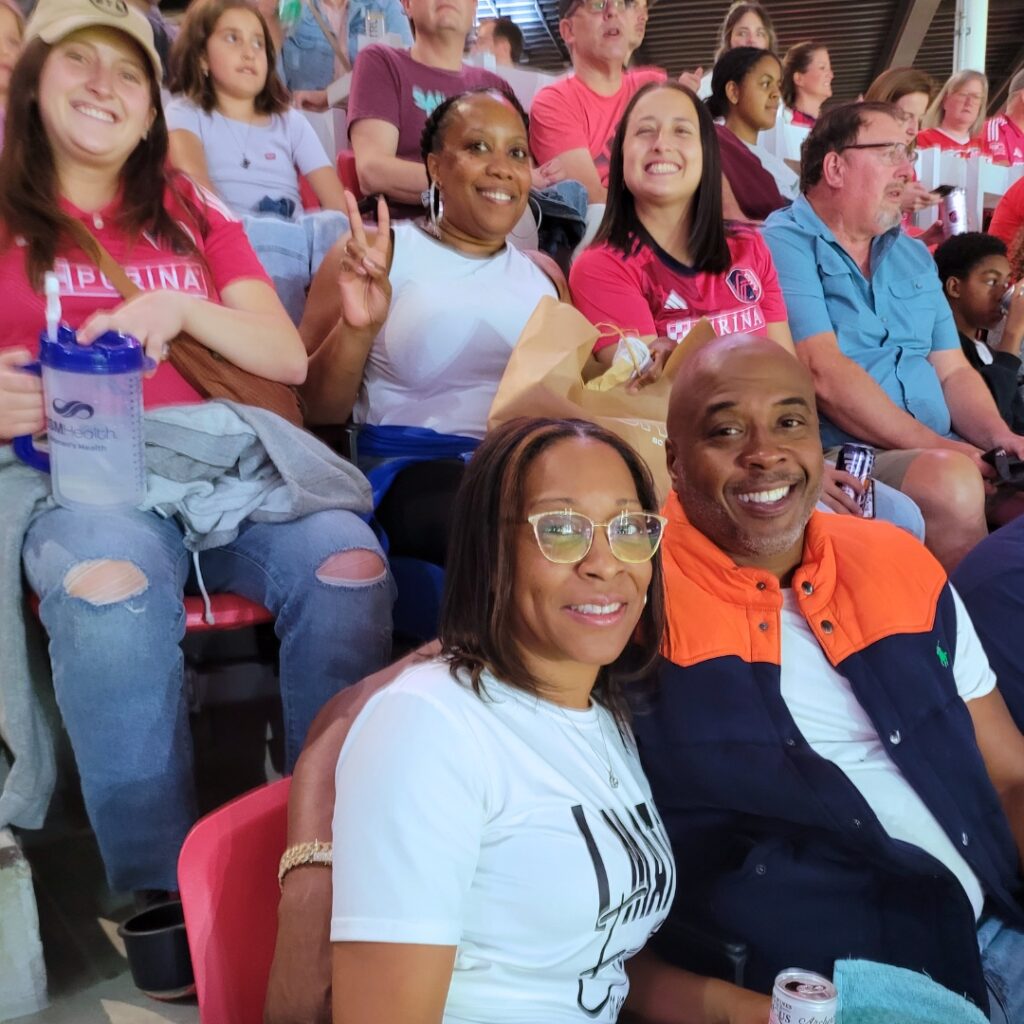
IHN CHAMPIONS COMMUNITY AT THE HEART OF NEURO360 INNOVATION

The St. Louis Integrated Health Network (IHN) is proud to have co-led the community engagement strategy for NEURO360, a bold initiative spearheaded by BioSTL and Washington University in St. Louis. NEURO360 is a regional coalition working to establish a world-class neuroscience innovation ecosystem—one that centers community voices, accelerates breakthroughs, and creates equitable access to care, careers, and capital. (neuro360engine.org)
As the Community Driven Innovation Co-Lead, IHN facilitated listening sessions with a wide range of partners and residents—including community members living with neurological conditions, advocacy organizations, disability rights leaders, rural health providers, and Federally Qualified Health Centers. These deeply relational conversations illuminated the lived experiences that too often go unheard in traditional research and innovation pipelines.
What We Heard from the Community: Opportunities to Learn and Build Together
The NEURO360 listening sessions surfaced critical insights—and equally, opportunities—to ensure that the future of neuroscience in St. Louis is inclusive, community-rooted, and equity-driven. What we heard affirms the need for systems that value lived experience and design with, not for, communities:
Equity & Access
Participants shared that barriers to neurological care go far beyond geography. From navigating insurance systems and provider bias to accessing disability accommodations and clear health information, communities face layered inequities. This is a chance to reimagine care delivery that meets people where they are—culturally, linguistically, and structurally.
Trust & Transparency
We heard deeply about the importance of trust. Past harms and lack of representation in research have led many to feel excluded from innovation. But communities are eager to engage when approached with consistency, honesty, and mutual respect. Trust-building is not a one-time effort—it’s a long-term relationship that NEURO360 is uniquely positioned to nurture.
Workforce & Opportunity
Participants across all backgrounds—especially from Black, Brown, rural communities, and the disability community—voiced a desire to be included in the neuroscience workforce. People living with disabilities shared challenges related to training access, job accommodations, and feeling truly seen in this space. The opportunity here is clear: create pathways that remove barriers, honor diverse abilities, and invite more people into meaningful roles within the field.
Sustainable, Inclusive Innovation
Communities want to know that the ideas and programs developed through NEURO360 won’t disappear after the grant cycle ends. They are looking for continuity, co-creation, and clear feedback loops. This is an opportunity to set a new standard for how innovation is developed—with humility, adaptability, and accountability baked in from the start.
NEURO360’s mission aligns with these findings. Its pillars—advancing neuroscience breakthroughs; catalyzing participation across industry, research, and underserved communities; accelerating STEM and workforce development; and constructing scalable, community‑inclusive innovation models—offer a strong foundation for translating what we heard into action.
IHN’s leadership in this work reflects our growing role as a trusted connector between systems and communities. We are proud to help shape this emerging ecosystem and ensure that innovation in neuroscience is not only scientifically excellent, but equitable, community-driven, and just.
“We didn’t just ask people to engage—we asked them to help lead,” said Saffiyah Poole, IHN’s Assistant Vice President of Planning and Operations. “Our communities have deep insight. NEURO360 is a chance to build with—not for—them.”
As the initiative continues, IHN will remain a critical partner in translating lived experience into systems-level transformation. Learn more at neuro360engine.org.
IHN’S VP OF POLICY AND STRATEGIC INITIATIVES BILL WINFREY PROVIDED BACKGROUND AND WAS QUOTED IN THIS NBC ARTICLE
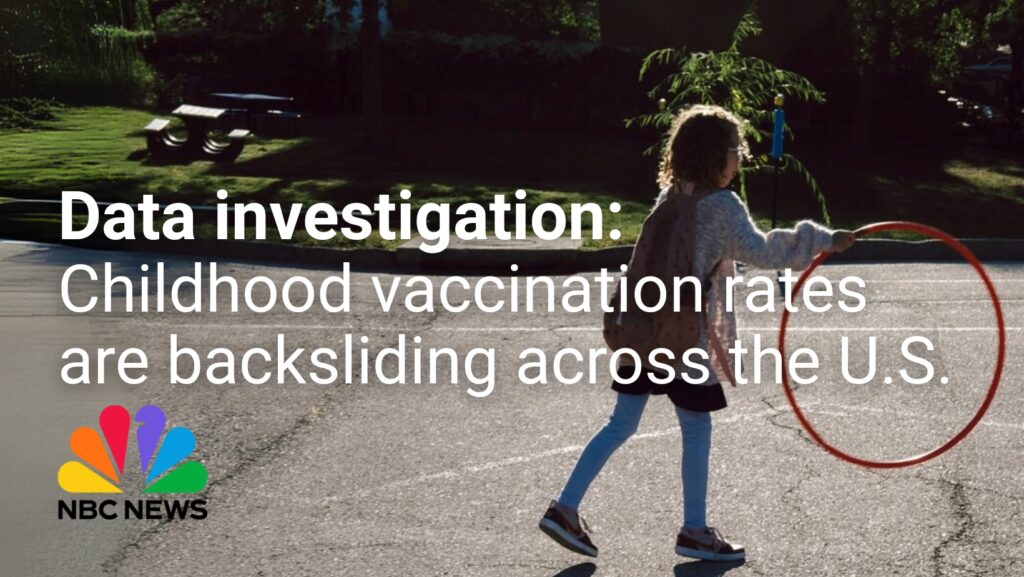
NBC National News recently ran a report on declining vaccination rates across the U.S., with a specific focus on St. Louis. The story included alarming data points, including:
- The rate of St. Louis-area children starting kindergarten with all required vaccines has declined from 91.6% during the 2010-2011 school year to 75.9% in 2024-2025
- St. Louis has lower rates of children receiving the MMR (measles-mumps-rubella) vaccine than Gaines County, Texas, the site of a major 2025 measles outbreak
“IHN continues to hold monthly discussions on respiratory viruses and childhood immunizations and welcomes anyone interested in participating in these calls. We aim to use these discussions as a forum to identify opportunities to support children and families in becoming vaccinated in the St. Louis area.” – Bill Winfrey, IHN, VP of Policy and Strategic Initiatives
BRITTANY JONES PRESENTS AT IAPHS 2025
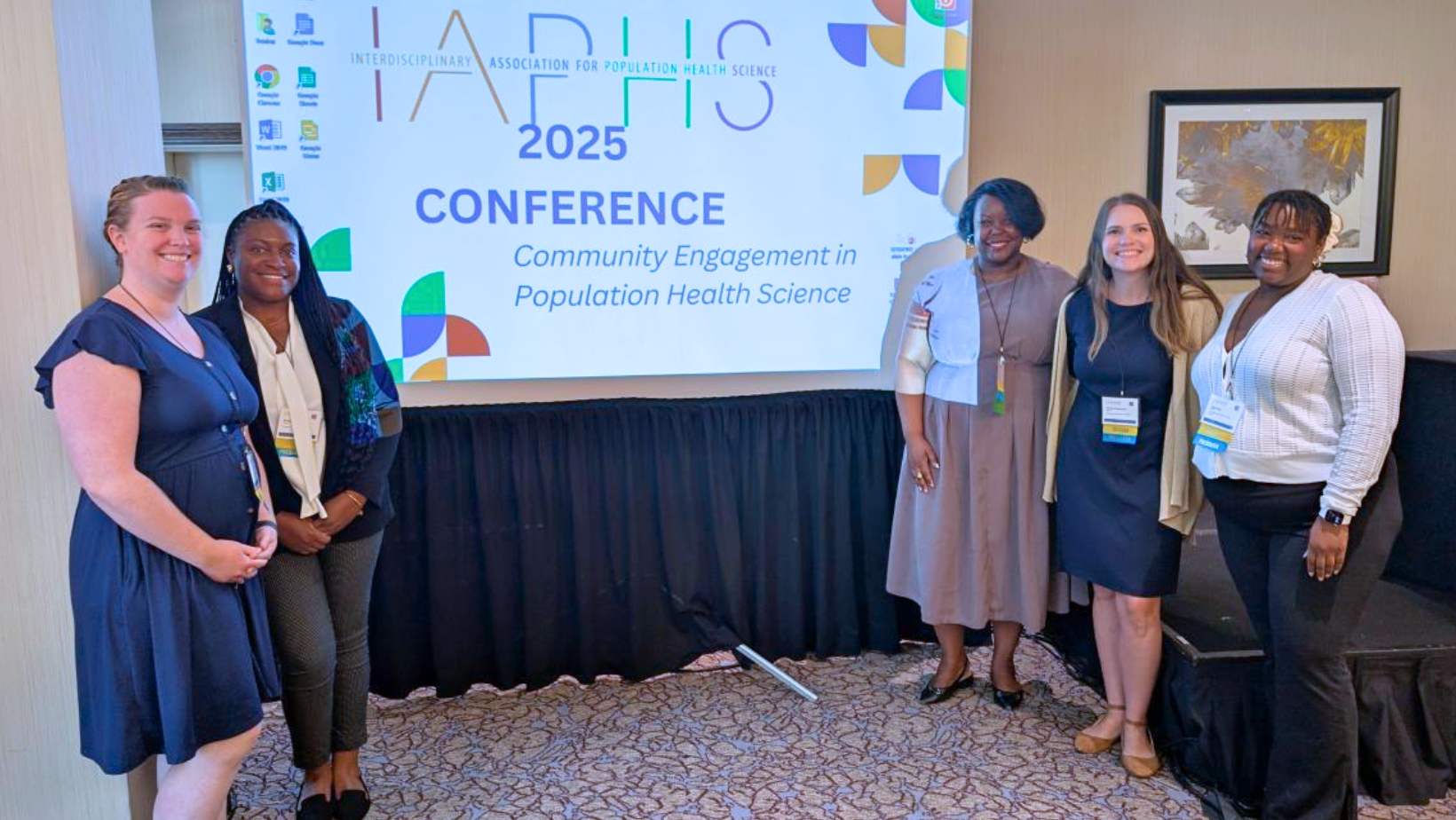
The Integrated Health Network (IHN) is proud to celebrate Brittany Jones, Director of Community Driven Innovation and Racial Equity Initiatives, for her recent presentation at the Interdisciplinary Association for Population Health Science (IAPHS) 2025 Conference. On September 10th, Brittany spoke during the session Sustaining Community-Engaged Research through Building Community Capacity in Public Health Research Education: The Example of the Community Research Fellows Training Program, its Application, and an Adaptation.
A passionate catalyst for racial justice and equity, Brittany has built extensive experience in project management, facilitation, visioning, and community organizing. Since joining IHN in 2019, she has advanced community-driven innovation while simultaneously earning dual master’s degrees in Social Work and Public Health at Washington University in St. Louis, graduating in 2024. Most recently, she was appointed to the City of St. Louis’s Board of Health and Hospitals, where she helps strengthen and coordinate community engagement.
Reflecting on the conference, Brittany shared:
“Earlier this week, I had the opportunity to present at the IAPHS conference. In our shared session, Jillian Bell and I highlighted our findings, efforts, and progress with our Life’s Beat: Heart Health Wellness Program. Three years of navigating IRB, planning, partnering, and recruiting—we are now able to speak to its purpose in centering community experience and prioritizing literacy within health care. I am grateful for our dynamic team: Jillian Bell, Danielle Landers, and Joyce Driver for their passion, commitment, and deep care for our community. Special thank you to Washington University’s School of Medicine’s Community Research Fellows Training (CRFT) Program for providing us with support and funding to launch our collective dream!”
Brittany’s leadership continues to exemplify IHN’s mission to drive equity and innovation in health care through community partnership and engagement.


STAFF SPOLIGHT: JOYCE DRIVER
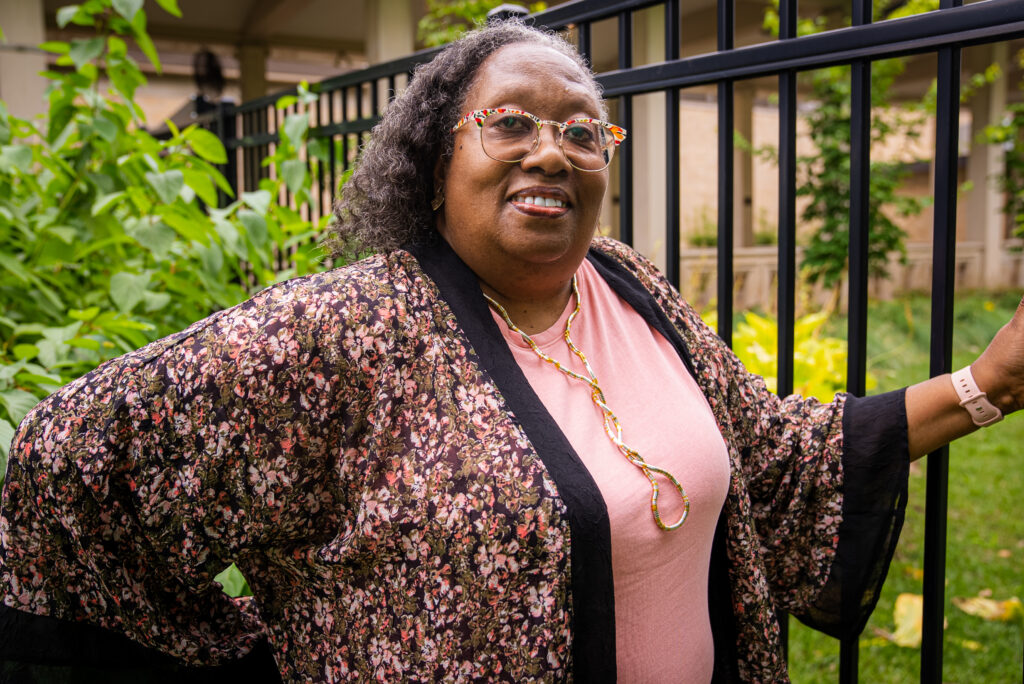
This month, the IHN is proud to honor Joyce Driver in our Staff Spotlight. With over 30 years of service as a social change agent, Joyce has dedicated her life to advocating for the most vulnerable in our community while mentoring and inspiring the next generation of leaders. Contributing a pivotal role in the success of the Community Health Worker for the Life’s Beat: Heart Health Wellness Program, her deep empathy, integrity, and passion for equity have left an indelible mark on IHN, our partners, and countless individuals across the St. Louis region.
Brittany Jones, Director of Community Driven Innovation and Racial Equity Initiatives, shared:
“Ms. Joyce embodies the saying ‘a gift that keeps on giving.’ As a social change agent for over 30 years, she upholds empathy, integrity, and advocacy for those most vulnerable within our community. In addition to her pour within community, she has avidly poured within our organization; her passion and commitment continues to create opportunities for emerging social change agents to advance racial and health equity. We often joke that Ms. Joyce is the Safety Net—but what remains true, is she creates spaces for members to be safe, seen, heard, and supported while navigating their healthcare.”
Her colleague Doretha Dillon, Assistant Director of Community and Clinical Integration also reflected:
“Joyce Driver is an exemplary human. She has given her life to helping others. There is no obstacle that she will not tackle to help someone. There are so many words to describe her but for me the best one is ‘inspiration.’ Joyce has a foresight to see people beyond their circumstance. Through her advocacy and activism she has impacted countless people across the St. Louis Region. It is an honor to be close enough to glean from her wisdom. We don’t have enough paper to spotlight Joyce Driver.”
Joyce herself says it best through the wisdom she shares daily:
“We make a living by what we get, but we make a life by what we give.”
“I get to see people who are out there and don’t even know they need help.”
“I meet people where they’re at. I always remember: I could be them and they could be me.”
IHN is deeply grateful for Joyce’s lifelong dedication to equity, compassion, and service. She is truly an inspiration, and we are honored to celebrate her impact.
RESPIRATORY VIRAL SEASON SOLUTIONS
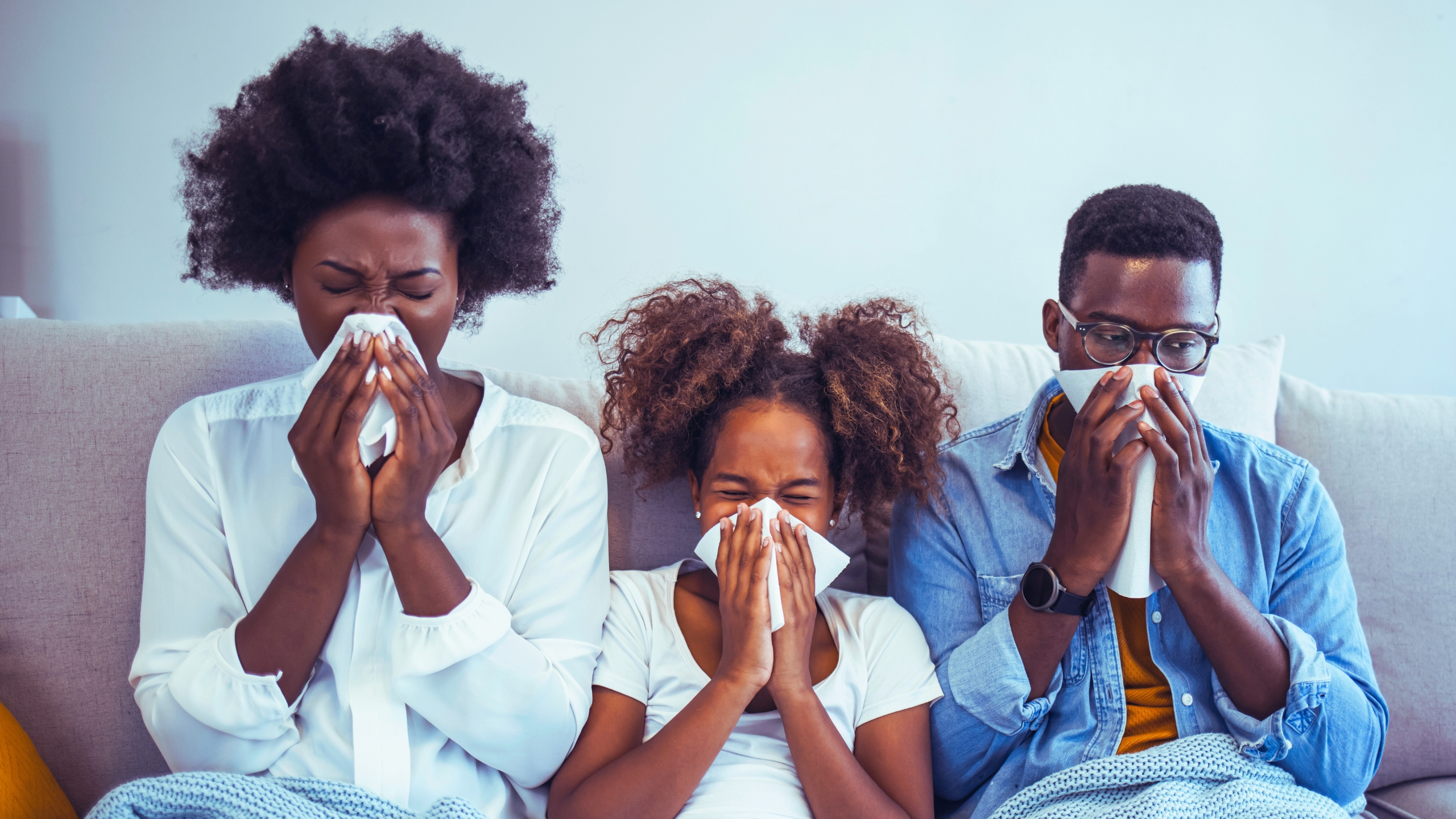
As we enter respiratory viral season, it is more important than ever to take steps to protect ourselves, our families, and our community. Each year, viruses such as Influenza, RSV, and COVID-19 place significant strain on our health systems and can cause severe illness—especially for children, older adults, and those with chronic health conditions.
The good news is that we have tools to reduce the impact of these viruses. Vaccination remains one of the most effective ways to prevent serious illness, hospitalization, and death. Staying up to date on recommended flu, COVID-19, and RSV vaccines helps protect not only you, but also those most vulnerable around you.
In addition to vaccination, practicing simple hygiene habits makes a real difference. Washing your hands often, covering coughs and sneezes, wearing a mask when you’re sick, and staying home if you don’t feel well are small actions that add up to big community protection. Together, through vaccination and everyday prevention, we can lessen the spread of respiratory viruses and keep our families, neighbors, and healthcare system healthier this season. We also recognize that the current political climate can make discussions around vaccines and public health challenging. Even so, it is important to stay focused on protecting the health and safety of our families and communities.
SEPTEMBER IS SUICIDE PREVENTION MONTH
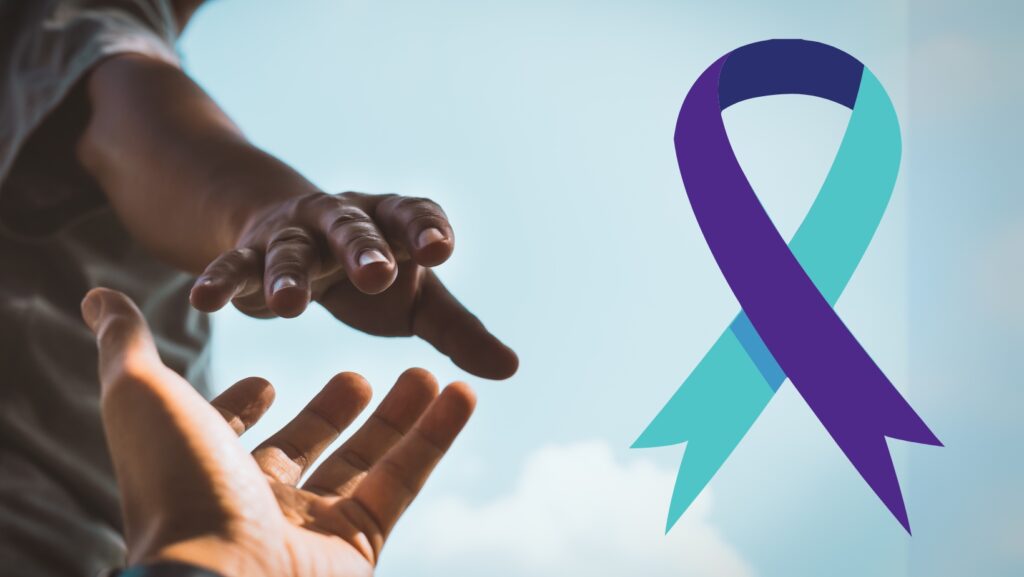
Although National Suicide Prevention Week and World Suicide Prevention Day have already passed, September remains a vital time to raise awareness, reduce stigma, and foster open conversations about mental health. This year’s theme, “Changing the Narrative on Suicide,” is a powerful reminder that the work doesn’t end after a single day or week. It calls us to move from silence and misunderstanding to openness, empathy, and connection—every day of the year.
Each of us has a role to play. Reaching out to friends, family, or neighbors with a simple, caring question—“How are you really doing?”—can open the door to meaningful conversations that save lives. Listening with compassion, without judgment, can provide someone with the hope and support they need.
If you or someone you know is struggling, help is always available. Dial or text 988 for free, confidential support 24/7.
Local Mental Health Resources:
• Affinia Healthcare: https://affiniahealthcare.org/department/behavioral-health/
• Peoples Health Centers: https://phcenters.org/services/
• Care STL Health: https://carestlhealth.org/services/behavioral-health/
• Family Care Health Centers: https://familycarehealthcenters.org/behavioral-health/
• St. Louis Mental Health Board: https://stlmhb.org/
• Behavioral Health Network of Greater STL: https://bhnstl.org/
• Behavioral Health Response: https://bhrstl.com/
• NAMI St. Louis: https://www.namistl.org/
• STL Dept. of Health Behavioral Health Bureau: https://www.stlouis-mo.gov/government/departments/health/behavioral-health/index.cfm
Together, we can create a community where no one feels alone in their struggles and where seeking help is always seen as a strength.
NATIONAL CHILDHOOD OBESITY AWARENESS MONTH
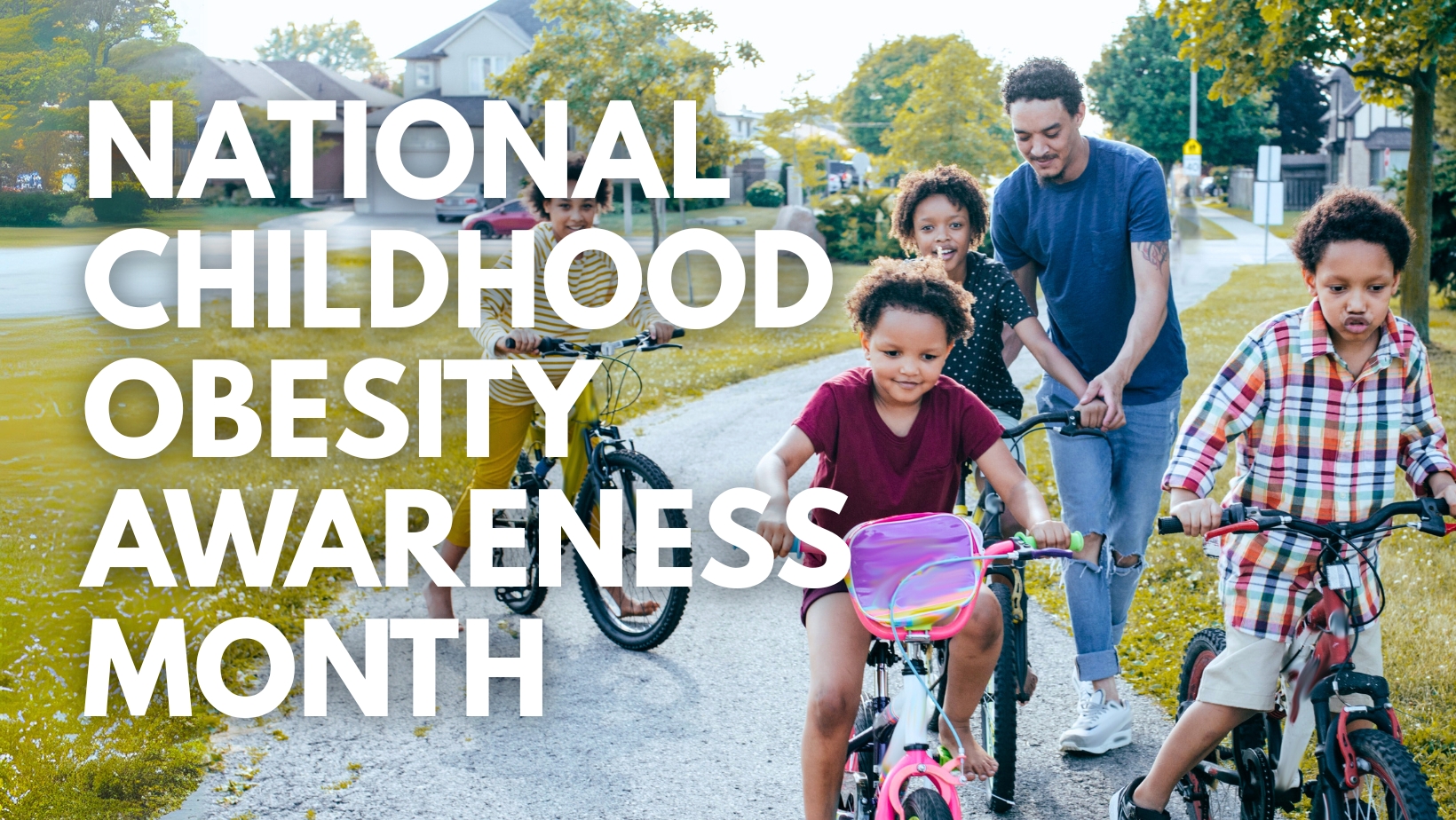
September is National Childhood Obesity Awareness Month, a time to recognize the importance of supporting children and families in building healthy habits for lifelong wellness. Childhood obesity can lead to serious health risks, but prevention and early intervention make a lasting difference.
One valuable resource is the CDC-recognized Family Healthy Weight Programs, which are designed to help families work together to adopt healthier lifestyles, prevent obesity, and improve overall well-being. These programs provide tools, education, and support to make sustainable changes that benefit the whole family. Learn more about how Family Healthy Weight Programs can support your family here.

Highlighting the real-life impact of the IHN. From the experiences of our dedicated staff to testimonies from the community we serve, these stories showcase the importance of access, collaboration, and compassionate care in our community.
ON THE FRONTLINES OF ACCESS: CONNECTING PATIENTS AND COMMUNITIES TO CARE
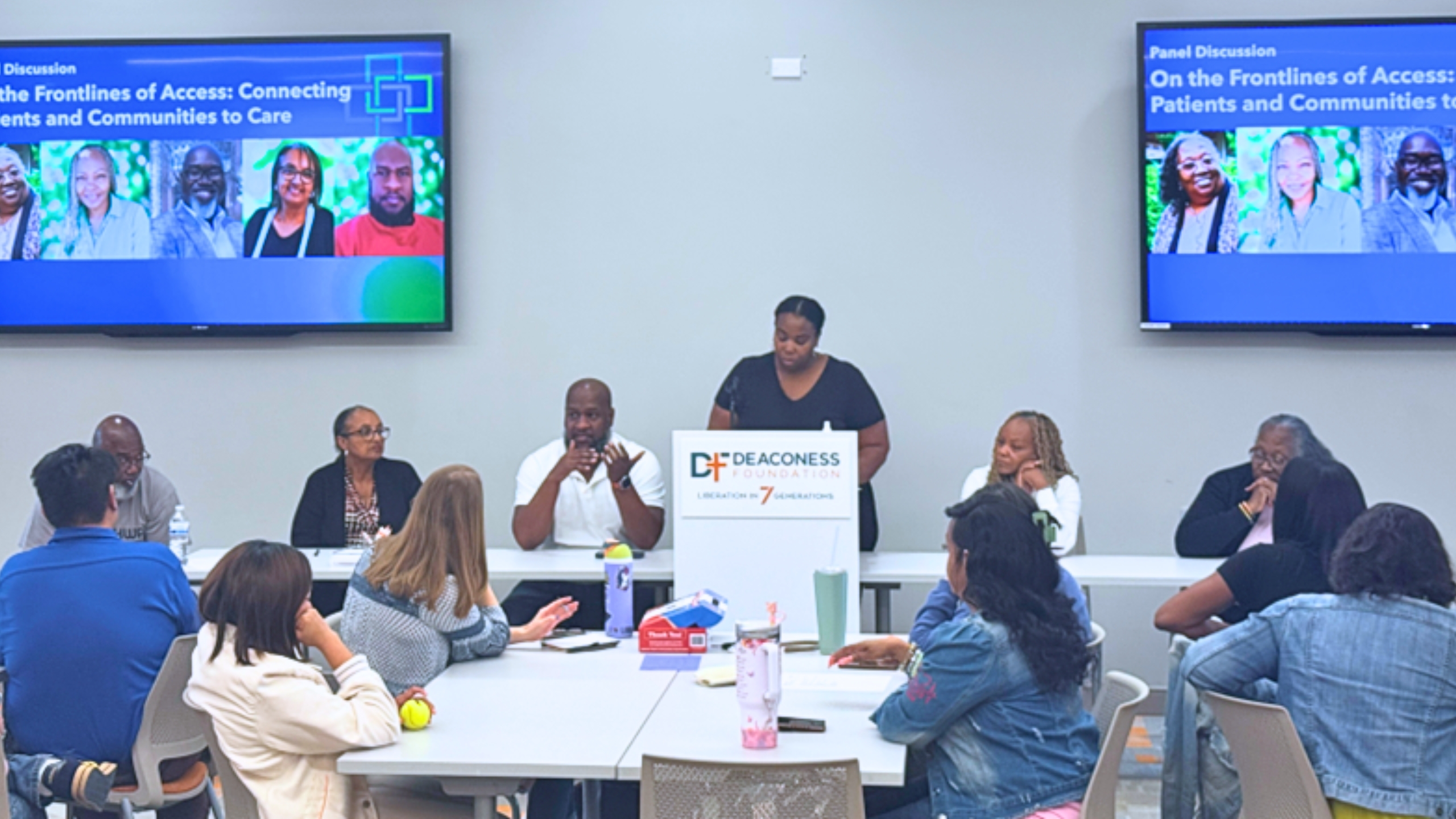
Reflections from the field
At our recent all-staff meeting, the St. Louis Integrated Health Network hosted a dynamic panel discussion featuring Community Health Workers (CHWs), Health Insurance Navigators, and Community Referral Coordinators (CRCs). These frontline professionals play a critical role in closing the gap between clinical systems and community needs—and their insights offered a powerful reminder of the importance of centering lived experience and authenticity in our work.
Lived Experience as a Bridge
The discussion made clear that the most impactful connections occur when professionals draw on their own lived experiences to serve others. When those facilitating care
understand, firsthand, the realities of navigating health systems, financial strain, or cultural mistrust, they are better equipped to respond with empathy, urgency, and relevance. Their ability to relate—not just respond—builds bridges to trust and care.
Tailored Support, Rooted in Respect
A consistent theme throughout the conversation was the importance of individualized care. Every client’s circumstances are different—whether they’re facing housing instability, language barriers, disability, or lack of transportation—and a one-size-fits-all approach doesn’t work. The panel emphasized that respect for each person’s unique situation is foundational, and support must be tailored accordingly. It’s not just about delivering services—it’s about doing so in a way that preserves dignity and fosters long-term engagement.
Authenticity as a Driver of Outcomes
Authenticity emerged as a core principle of effective frontline work. When interactions are grounded in honesty, cultural alignment, and sincere care, clients are more likely to follow through, return for help, and trust the system. Authenticity strengthens relationships, which in turn strengthens outcomes—socially, emotionally, and medically.
A Systems-Level Imperative
This conversation was not just a moment of reflection; it was a call to action. As we continue to advance access and equity across the region, it’s critical to uplift and integrate the voices of those doing the work on the ground. Their experiences illuminate blind spots in the system and offer solutions that are both compassionate and pragmatic.
The panel offered a powerful reminder: real impact happens when systems respect and reflect the people they serve. Lived experience and authenticity aren’t soft skills—they’re essential tools for transforming health outcomes and building a more equitable future.

Highlighting the power of partnership. From community-based organizations to healthcare institutions, IHN is proud to collaborate across sectors to advance health equity in the St. Louis region and beyond.
COMMUNITY VOICES SHAPE NEXT-GENERATION OSTEOARTHRITIS CARE

Since last year St. Louis Integrated Health Network has partnered with Washington University School of Medicine and the Oklahoma Medical Research Foundation (OMRF) on the Advanced Research Projects Agency for Health’s Novel Innovations in Tissue Regeneration for Osteoarthritis (NITRO) program. While scientists at WashU and OMRF advance a first-in-class, cartilage-repair injection (see the original award announcement here), IHN is charged with making sure that patient and community perspectives inform every stage of the therapy’s development. Between January and May we convened seven listening sessions in St. Louis and Oklahoma, engaging fifty adults who live with knee osteoarthritis across key demographic groups.
Participants’ stories revealed several recurring pain points. First, people routinely described years of worsening symptoms before anyone ordered imaging or referred them to a specialist, leaving many to self-manage with over-the-counter pain relievers. Second, surprise bills and opaque insurance rules have bred some distrust among community members, prompting calls for clear cost explanations before trial enrollment. Third, needle anxiety is real; would-be participants want honest details about injection size, pain-control plans and safety monitoring. Finally, there is strong enthusiasm for whole-person care that pairs any new biologic therapy with rehabilitation, weight-management coaching and mental-health supports.
These insights are shaping easy-to-read materials for participants and informing trial design that centers community input. Our NITRO Community Advisory Board also meets regularly to review outreach materials, flag confusing language, and ensure that our work responds to participant feedback. For more information, please visit the NITRO page on the IHN website or contact Tobeya Ibitayo (tibitayo@stlouisihn.org).
This research was, in part, funded by the Advanced Research Projects Agency for Health (ARPA-H). The views and conclusions contained in this document are those of the authors and should not be interpreted as representing the official policies, either expressed or implied, of the United States Government.

During the spring, IHN engaged with partners across the state and country to highlight the potential impacts of H.R. 1. With its passage, our attention has turned to the local impact it may have and how best to mitigate its effects. To that end, we have compiled data insights on the impact of this bill on the healthcare system, with some notable effects including:
- For St. Louis-area FQHCs- losses of 15,000 individuals from coverage and $15M in revenue due to work requirements
- For St. Louis- estimated loss of some or all SNAP benefits for 37,000 individuals
- For Missouri-
- Reduced Medicaid funding of $1.5B based on reductions in the provider tax rate
- Losses in coverage for 72,000 individuals due to expiration of enhanced premium tax credits for Marketplace coverage
- Increased costs of roughly $200M dollars to maintain SNAP benefits at current levels due to increased cost-sharing burden
More details are available at the link above, and a full outline of provisions of the legislation are available in our companion analysis.

- Free Health Screenings | Every Tuesday, 9:00am – 1:00pm | BJK Peoples Health Centers
- 314 Oasis Healthcare Resources | Every Wednesday, Sept 17th – Oct 29th, 11:00am – 2:00pm | Centennial Church 4950 Fountain Park
- OVP Kickback (October) | October 18th, 10:00am – 2:00pm | The Grove 1027 S. Vandeventer Ave, 63110
- St. Louis Fire Department’s Fire Safety Falloween Festival | October 18th, 2:00pm – 5:00pm | 1421 N. Jefferson
- Affinia Healthcare Monthly Diaper Giveaways: Click for more information
